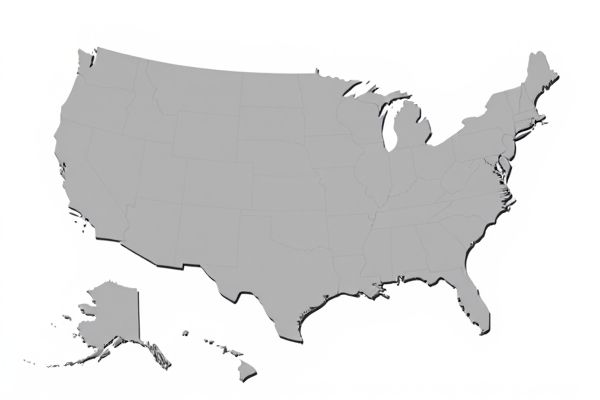
Explore endless possibilities with our Random Location Generator for the United States, perfect for travel planning, games, or creative projects. Instantly discover unique cities, states, or landmarks across the country with just a click. Enjoy a seamless, user-friendly experience designed to inspire your next adventure.
Online tool for random location generator united states
Below are several sample lists for the United States random location generator prepared for your convenience and ready to use. You can also enter your own list to customize the randomization process. With just one click, you will receive a randomized list or a single value to use instantly.Data Source
Single Result
Multiple Results
Understanding Random Location Generators
Random location generators for the United States use algorithms to produce unbiased geographic coordinates within specified boundaries, ensuring a truly random distribution across states, cities, or ZIP codes. These tools integrate databases containing detailed spatial data, such as latitude and longitude ranges, political borders, and demographic overlays to enhance precision. Understanding the mechanics behind this process enables users to leverage these generators for applications in research, logistics, and mapping projects efficiently.
Benefits of Using a US-Based Location Generator
A US-based random location generator provides accurate geospatial data tailored to the United States, enhancing relevance for users needing precise coordinates for applications like logistics, marketing, or travel planning. This tool supports efficient decision-making by offering quick access to diverse locations across all 50 states, ensuring comprehensive regional coverage. Leveraging a US-specific generator reduces errors linked to improper data formats or timezone discrepancies common in global tools, improving reliability and user experience.
Top Applications for Random US Locations
Top applications for random location generators in the United States include geocaching, disaster response training, and travel planning. Developers utilize tools like the Random US Location Generator API to create realistic scenarios for emergency drills and simulation exercises. Marketing professionals leverage random location data to target diverse demographics and optimize regional campaigns.
Key Features to Look for in a Generator
A top random location generator for the United States should include features such as customizable geographic filters, allowing users to select specific states, cities, or regions. It should offer precise latitude and longitude coordinates alongside ZIP codes for accurate mapping and navigation. Integration with mapping services like Google Maps enhances usability by providing immediate location visualization and directions.
Popular Tools for Random Location Generation
Popular tools for random location generation in the United States include websites like Random.org, Geotargit, and LatLong.net, which provide precise latitude and longitude coordinates for any specified region. These tools utilize geographic databases and algorithms to ensure unbiased, truly random location outputs ideal for research, geocaching, and travel planning. Features such as customizable ranges, map visualization, and integration with GPS apps enhance their functionality and user experience.
Addressing Privacy and Security Concerns
Random location generators in the United States implement advanced encryption protocols and anonymization techniques to safeguard user data, ensuring that generated coordinates cannot be traced back to individuals. These tools comply with strict privacy regulations such as the California Consumer Privacy Act (CCPA) and emphasize minimizing data retention to reduce security risks. Integration of secure APIs and regular security audits further enhance protection against unauthorized access or data breaches in random location generation services.
Integrating Generators with Mapping Software
Random location generators for the United States enhance spatial analysis by seamlessly integrating with mapping software such as ArcGIS and QGIS. These tools allow users to visualize generated coordinates on interactive maps, supporting applications like demographic studies, logistics planning, and geotargeted marketing campaigns. Data interoperability with APIs ensures real-time location plotting, improving efficiency in field research and urban development projects.
Use Cases in Games and Education
Random location generators for the United States enhance game design by providing unpredictable coordinates for treasure hunts, role-playing scenarios, and geocaching activities, boosting player engagement and replayability. In education, these tools facilitate geography lessons by enabling students to explore diverse U.S. regions, analyze demographic data, and develop map-reading skills through interactive assignments. Integrating random location generators supports experiential learning and creative storytelling in both gaming and classroom environments.
Customization Options for US Regions
The random location generator for the United States offers extensive customization options, allowing users to specify particular states, cities, or zip codes to narrow down search results. Users can also filter locations by geographic features such as urban, rural, coastal, or inland areas, enhancing precision for travel planning or data analysis. Advanced settings include selecting specific US regions like the Northeast, Midwest, South, or West, providing tailored randomization based on regional preferences.
Future Trends in Random Location Generation
Future trends in random location generation for the United States emphasize increased integration of AI algorithms and machine learning to enhance accuracy and contextual relevance. Advances in geospatial data analytics and real-time data sourcing from IoT devices will enable dynamic, highly precise location outputs tailored for various applications like logistics, gaming, and urban planning. Enhanced privacy-preserving techniques will also evolve, ensuring compliance with data protection regulations while delivering granular location insights.
 azrandom.com
azrandom.com